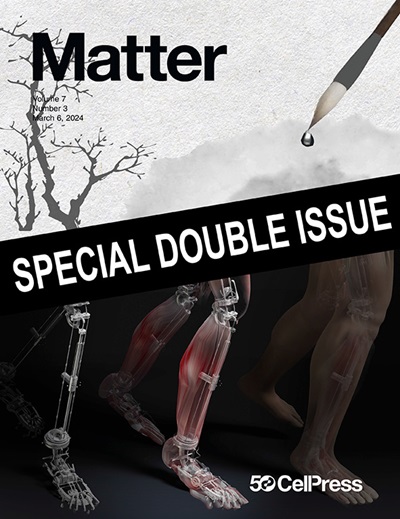流动化学在自动驾驶实验室中的作用
IF 17.5
1区 材料科学
Q1 MATERIALS SCIENCE, MULTIDISCIPLINARY
引用次数: 0
摘要
自动驾驶实验室(sdl)通过将高通量实验与人工智能(AI)驱动的决策相结合,正在改变化学和材料的发现。sdl的成功取决于其生成和分析高质量、高密度实验数据的能力,从而实现对复杂化学空间的快速优化和自主探索。从这个角度来看,我们研究了流动化学如何通过提供连续合成、实时分析和模块化配置来最大化数据采集和增强灵活性,从而作为sdl的基础平台。小型化、连续反应监控和自适应控制之间的协同作用,为wsdl内可扩展的、数据丰富的实验建立了一个框架。此外,我们还讨论了通过编纂反应器工程原理来实现流体机器人数字化设计的新兴方法,从而实现不同化学物质的自动化配置。随着人工智能驱动规划的发展,具有自主流动能力的sdl将加速发现,并在智能、数据驱动的材料科学研究中建立新的范式。本文章由计算机程序翻译,如有差异,请以英文原文为准。

The role of flow chemistry in self-driving labs
Self-driving laboratories (SDLs) are transforming chemical and materials discovery by integrating high-throughput experimentation with artificial intelligence (AI)-driven decision-making. The success of SDLs hinges on their ability to generate and analyze high-quality, high-density experimental data, enabling rapid optimization and autonomous exploration of complex chemical spaces. In this perspective, we examine how flow chemistry serves as a foundational platform for SDLs by offering continuous synthesis, real-time analytics, and modular configurations that maximize data acquisition and enhance flexibility. The synergy between miniaturization, continuous reaction monitoring, and adaptive control establishes a framework for scalable, data-rich experimentation within SDLs. Additionally, we discuss emerging approaches to digitalizing the design of fluidic robots by codifying reactor engineering principles, enabling automated configuration for diverse chemistries. As AI-driven planning evolves, SDLs with autonomous flow capabilities will accelerate discovery and establish a new paradigm in intelligent, data-driven materials science research.
求助全文
通过发布文献求助,成功后即可免费获取论文全文。
去求助
来源期刊

Matter
MATERIALS SCIENCE, MULTIDISCIPLINARY-
CiteScore
26.30
自引率
2.60%
发文量
367
期刊介绍:
Matter, a monthly journal affiliated with Cell, spans the broad field of materials science from nano to macro levels,covering fundamentals to applications. Embracing groundbreaking technologies,it includes full-length research articles,reviews, perspectives,previews, opinions, personnel stories, and general editorial content.
Matter aims to be the primary resource for researchers in academia and industry, inspiring the next generation of materials scientists.
 求助内容:
求助内容: 应助结果提醒方式:
应助结果提醒方式:


